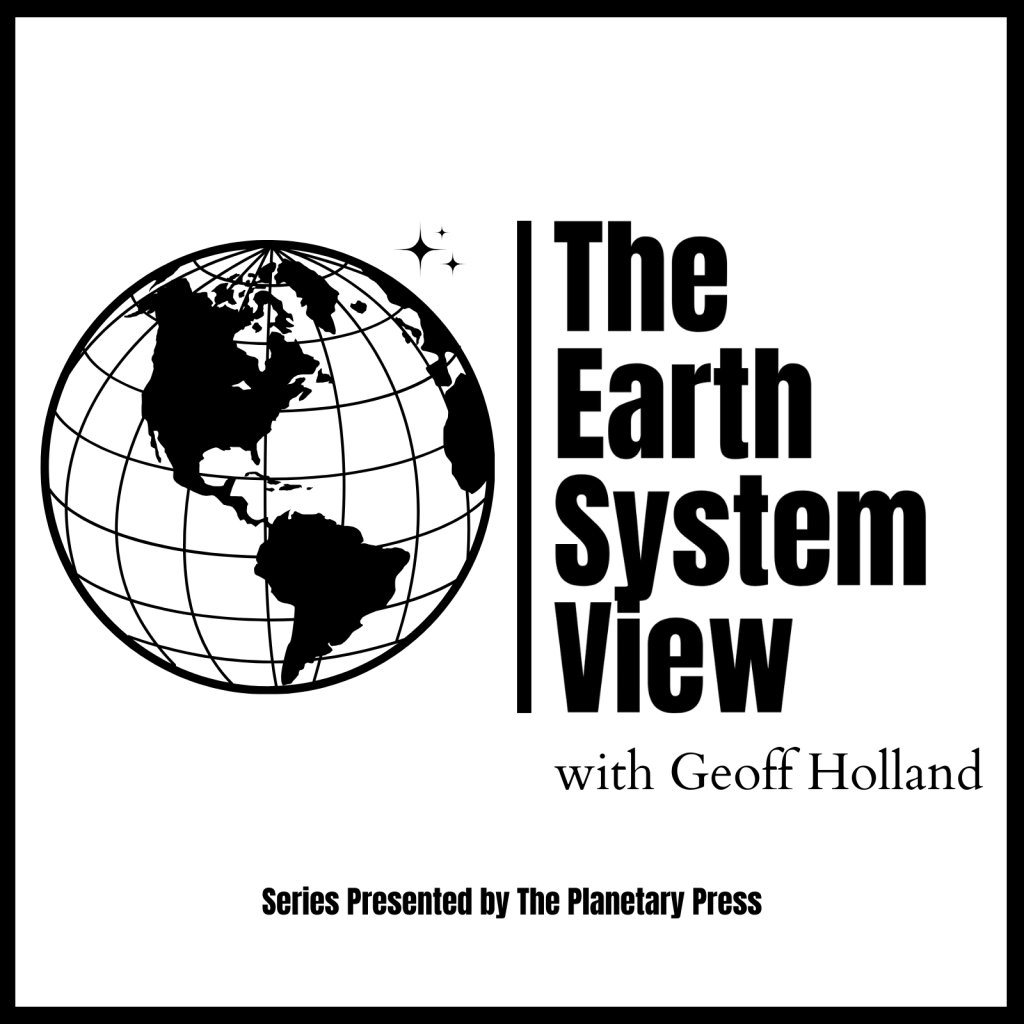
After becoming active in the feminist movement, Kathy Spillar quickly rose as a leader, serving four terms as President of the Los Angeles chapter of the National Organization for Women. She is a Co-Founder and the Executive Director of the Feminist Majority Foundation. In 2005, Kathy Spillar became Executive Editor of Ms. Magazine, which is owned and published by the Feminist Majority Foundation. She continues in that role today.
As a leading voice in the struggle for gender equality, Kathy Spillar has championed constitutional equality for women, including the Equal Rights Amendment, equal access to education, women’s healthcare and reproductive rights, and equal opportunity for women in the workplace and in politics at the local, state, and national levels.
In this dialogue, Kathy Spillar offers perspective on the unprecedented 21st-century challenges that loom globally over all of humanity and life on Earth.
Geoffrey Holland: For many millennia, humans have behaved like we are above and superior to nature. Because of human indifference, life on Earth is now seriously out-of-balance. Has the time come for us humans to recognize that we are a part of nature, and that we have an obligation to each other and to future generations to be worthy caretakers of the only planetary home we have?
Katherine Spillar: Without question, the time has come. In fact, I hope it’s not too late. I don’t think it’s too late. But we have to move with all due speed and deliberate action to ensure that women gain in power to be equal to their male counterparts. I mean, we have underrepresentation of women in government all around the world. No country has achieved real equal representation or gender balance in its major lawmaking bodies, whether that’s parliaments and national bodies or local and state bodies. Without that balance, the concerns that women bring to public policy-making, and how you spend a nation’s resources, women are underrepresented.
Everywhere, women are the caretakers of children and the elderly. They fundamentally understand many of the problems that this world faces and from a very different perspective than most men. Most men are not involved in childcare, child-rearing, and elder care. Certainly not to the extent that women are. So, women and men bring very different perspectives on what is needed in terms of public policy, spending of public resources, and priorities in the world and priorities in their country or in their communities. But it’s the lack of women in the rooms where those decisions are being made.
The feminist movement writ large all around the world has been very focused on how we’re going to increase women’s representation in decision-making in governments because it’s the underrepresentation we recognize that has led to many of the problems that we have and how these existential problems of this world are even being dealt with. So, we have to focus on how we empower women politically, how we empower women legally, and in their own individual lives to be able to get past these power issues.
Feminist movements all over the world have been a global movement, and it has long been focused on many of these issues at the core of this Earth System treaty. This beacon of common purpose recognizes that the underrepresentation of women and the power imbalance— the under-empowerment of women and the over-empowerment of men— this imbalance is a cause of many problems, and our movement has long been focused on correcting course on these issues.

GH: Historically, for some 10,000 years, since the beginnings of agriculture and humans living in permanent settlements, men have been dominant, with women subjugated and the natural world exploited, largely with indifference. That entrenched cultural attitude has shifted a lot in the most recent hundred years. Women are now claiming their rightful, gender-equal place across ever more of the planet. How do you see women in leadership roles at the local, state, and national levels impacting the future of life on Earth?
KS: Well, let me say one thing. I don’t know if it was only 10,000 years ago. There are a lot of different theories about how we ended up with these patriarchal systems everywhere, and there are pockets of populations still that have a more egalitarian way. In those places, women wield great power in terms of their communities. However, most all of the current countries on Earth are based on a patriarchal model, where men are considered superior and women inferior, where men dominate social, economic, and legal decision-making. That’s all changing. Getting past that lack of balance is critical.
We know that inequality is creating real problems. We also know that women are not inferior and that, in fact, empowering women and girls not only to make decisions for themselves but to make decisions for their communities, their families, and their nations is a way forward. We’ve got to be very heavily focused on that. The United Nations recognizes this with the Sustainable Development Goals.
Realizing all of these Sustainable Development Goals as part of this Earth System Treaty idea, something like this is essential. This world moving in a positive direction for the environment, for all nations, for the health and welfare of all people, for all of humanity— empowering women and girls is a very central part of that. In fact, I don’t think any other development goal can be achieved without achieving equality in all ways for women.
Gender equality should be humanity’s number one goal because all else will follow. Women are the subsistence farmers throughout the world, facing climate crises, their crops being wiped out, losing their only source of income for themselves and their children, and their communities being obliterated in the face of these climate extremes. The climate crisis is a global issue. It is causing huge migrations of people, and many of them are women with their children in tow, trying to escape the violence of war or the violence of the extreme weather and food insecurity. It’s good to pause and recognize that the solutions that come with common purpose emerge from real, genuine gender equality. This is how our world moves forward in the best way.
GH: The existential challenges unleashed by human overreach can only be addressed on a global scale. Does humanity need some kind of common purpose to get past the tribalism and self-interest that has left us so deeply polarized culturally?
KS: Absolutely, we need common purpose. You see that reflected in the United Nations Sustainable Development Goals and, in fact, in the institution itself. The United Nations— for as many problems as the United Nations has, with its governance and its infrastructure— is our best hope for keeping the world united around what needs to happen so that we can get to a place in our Earth’s history where the human population can thrive without destroying the rest of the world.
You can hardly thrive if you’re destroying your environment and engaged in massive wars. So, I think that we’ve got to support the United Nations in doing the work to make trust and cooperation real. Our world needs to learn to cooperate. We must get past the tribalism. We must all recognize that we’re all in this together. I think the UN is the best place to do that.

GH: The human culture is immersed in unprecedented political division, driven in large part by the internet and social media that connect all the world’s people together as never before. How do we get past the incessant drone of misinformation coming from the old guard, and use this new cultural reality to bring humans everywhere together behind worthy common purpose?
KS: Well, we’ve got to figure this out because platforms that can communicate with people all over the world and provide information to people all over the world are a critical way for moving forward. But we have bad actors resisting change. I do think that governments have a role in ensuring that bad actors cannot become the dominant force on these platforms.
We’ve also got to be teaching children from a young age how to be critical thinkers about what they see on these platforms and how to identify conspiracy theories and identify disinformation and deliberate misinformation. We have to teach kids how to do that. We have to be teaching that in our schools and our public education systems and encourage other countries to do the same.
That’s probably the only way we can avoid some kind of 24 /7 entity monitoring everything that’s going on. It’s billions and billions and billions of postings every day. That’s messages and postings every day. So, we’ve got to teach people to be discerning in their use of this technology and to invest in the ways that it can be a positive force. That’s going to be very critical, investing in ways that it can be a positive force— in ways the platforms can resist the destructive forces.
GH: There is no doubt that human life has come to a turning point like none ever seen before. What would you say our world needs most at this moment to bring all of humanity together behind a fundamental course correction, a kind of cultural renewal that leads to the best kind of human future?
KS: There’s no question that all of life on our Earth is at a planetary-scale turning point. The view of feminism writ large generally is that democracy and democracies are the best way forward. You know, people able to wield political influence to determine their futures and their lives, and constantly striving for gender equality is a critical part of all that.
We’re facing rising authoritarianism in countries around the world, including in this country and the attack on women’s fundamental rights. That is a big part of the rise of an authoritarian backslide. Turning back the clock on women’s rights, imposing draconian restrictions on reproductive rights. Those are the kinds of things that lead to greater authoritarianism, and we’ve got to recognize that and resist it in every way possible.

GH: You have joined other leading voices in standing behind a big cultural idea called the Earth System Treaty. Can you talk about this treaty and about why you believe it can be a game-changer, a beacon of common purpose that all our world’s people can stand behind?
KS: Well, I think all the elements of this Earth System Treaty are a no-brainer. I mean, to have a sustainable earth and life on Earth, we must do these things. We have to ban nuclear weapons. We have to combat climate change. We have to make sure that we have a reliable and sustainable food supply for all of the world. I think central to all of this are the Sustainable Development Goals that the United Nations has developed through years of deliberation and input from organizations like ours and input from all kinds of organizations representing all of humanity.
Then, empowering women over their own reproductive lives so that they can choose to have fewer children, if any children, and that they have what they need to raise those children to adulthood. That requires access to healthcare, access to education, access to essential resources of every kind so that they can make decisions for themselves and their families that contribute to a sustainable and peaceful world. Those are all elements of a successful future for humanity. Different groups will focus on different issues and threats. All can and will stand together behind cooperation and a common commitment to the best kind of human future.
GH: The late comedian Groucho Marx said, “Politics is the art of looking for trouble, finding it everywhere, diagnosing it incorrectly, and applying the wrong remedies.” If enough good people, including all genders, ethnicities, and nationalities, stand together behind common purpose, can that lead to the kind of trust that powers transcendent cultural change?
KS: In short, yes, but I think Groucho makes a very important point. It is correctly diagnosing the problem. If we fail to study and adequately diagnose the problem, we can apply the wrong solution. It happens all the time. But I do think that the work, the effort, the motives of this Earth System Treaty are a worthy ambition to attempt to rally people across the world’s cultures. As I said, the development of the UN Sustainable Development Goals has been extraordinary. With these efforts by the world community to identify the causes behind these global-scale problems and also identify potential solutions for getting us out of these problems, I think we’re on the right track. I am not as pessimistic as Groucho Marx was. I do think that humans have an extraordinary intellectual capability and can move resources and create more opportunities so that we can reach a sustainable, peaceful world.
The good news is that the vast majority of people in this world are for that. I mean, it would be a real tragedy if we didn’t have popular public opinion everywhere with us. There is no country in the world that believes that war is good. There is no country in the world that believes that mass starvation and environmental destruction are good. But those forces remain at play because of some decisions that we humans have made and continue to make. Still, I am hopeful. I think the only way you can keep doing this work is to stay hopeful. We are obligated to ourselves and to future generations. At this moment, we don’t know how the human story is going to turn. I mean, it could all lead to a terrible end, or it could lead to a wonderful end. It’s a process, and it isn’t going to happen overnight.
We’ve just got to stay focused on what we can do, each of us, the organizations that we’re active in, and the movements we’re active in. We have to stay engaged. Active engagement— informed active engagement— that’s how we win this collective human struggle. By coming together, sharing a common commitment to each other and to our Earth’s natural world, the one we all depend on for survival, the only one we have, that’s how we make the best kind of future for ourselves and generations yet to come.
Stay tuned for more of The Earth System View series!

Hosted by author and veteran Stanford MAHB journalist Geoff Holland, The Earth System View explores the progressive idea of an Earth System Treaty as a solution to our planetary challenges.







